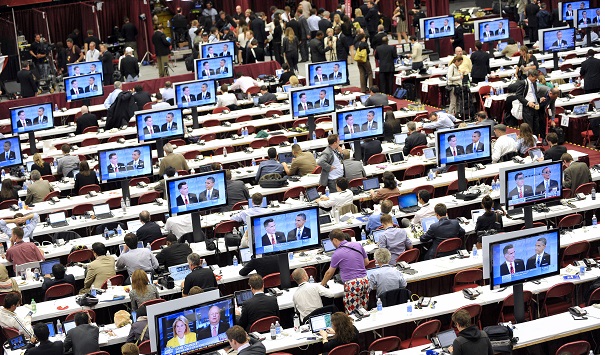OUTLOOK ’18: Asia PMMA uptrend may reverse in H1, tracking MMA costs
Kheng Wee Loy
02-Jan-2018
SINGAPORE (ICIS)–The uptrend in Asia polymethyl methacrylate (PMMA) spot markets may reverse in the first half of 2018, tracking feedstock methyl methacrylate (MMA) costs closely.
PMMA spot prices in southeast (SE) Asia and China have been increasing since early 2017, parallel with the upward movement in the upstream MMA markets.
 Photo by
KeystoneUSA-ZUMA/REX/Shutterstock (1894390o)
Photo by
KeystoneUSA-ZUMA/REX/Shutterstock (1894390o)
Regional PMMA prices surged by around 37% to $2,850/tonne CFR (cost and freight) SE Asia on 21 December, compared to the $2,075/tonne CFR SE Asia in early 2017, according to ICIS data.
Similarly, spot prices for China imports were assessed at $2,840/tonne CFR China on 21 December, a 40% climb from the $2,025/tonne CFR China seen in January, ICIS data indicated.
However PMMA spot prices may post some declines in 2018, possibly triggered by a softening in the MMA markets and an uptick in PMMA supply, sources said.
PMMA supply is foreseen to lengthen, with fresh volumes coming from the two new production capacities in Saudi Arabia. Both facilities are equipped with MMA and PMMA units.
A new 40,000 tonne/year integrated facility in Saudi Arabia, belonging to Saudi Methacrylates Company (SAMAC), is expected to start PMMA production soon, given that MMA production had started in November, market players said.
Separately, a 50,000 tonne/year unit in Saudi Arabia, operated by Petro Rabigh, is likely to commence PMMA production sometime in the first half of 2018, according to sources.
Additionally, two new facilities are expected to start up in China and raise the country’s PMMA production by around 150,000 tonnes/year.
The start-up of these new plants should put some downward pressure on the PMMA spot prices as the new volumes will alleviate the prolonged supply shortages seen throughout 2017.
Multiple plant outages and scheduled shutdowns in the region played a part in keeping spot availability limited, sources said.
Assuming no further disruptions, existing sellers affected by recent planned and unplanned shutdowns are expected to be able to build up production and inventory levels gradually in the new year.
In terms of feedstock, MMA markets may weaken in the year on the back of longer supply and stable demand.
Regional MMA prices for small cargoes of 20-300 tonnes were assessed at $2,700/tonne CFR SE Asia on 22 December, around 37% higher than the $1,975/tonne CFR SE Asia at the start of 2017, according to ICIS data.
Softer upstream spot prices would mean lower costs for PMMA makers, and therefore, potentially increased PMMA production rates.
However, the decision to increase PMMA production rates may depend on the profitability of manufacturing MMA in certain cases.
“Some producers [with MMA and PMMA facilities] can divert their resources accordingly and produce the item that reaps the best margins. So in a way, this can affect spot prices,” a seller said.
The spread between PMMA and upstream MMA prices climbed above the zero mark in October 2017 and reached a positive level for the first time since March.
Demand, on the other hand, is unlikely to fluctuate greatly.
“I may adjust the purchase volumes from time to time, depending on the spot prices, because it is hard to pass the costs to our customers. But it won’t be too significantly because we have a business to run,” a buyer said.
Some consumers may slowly begin to build up their PMMA inventories, given that they have been purchasing small amounts on a need-to basis in view of the strong spot prices.
“Buying interest in the automotive and display sectors will remain quite strong too,” a trader said.
PMMA is used in the manufacture of automotive, household and electronic products, and is the largest downstream market of MMA.
Outlook article by Kheng Wee Loy
Global News + ICIS Chemical Business (ICB)
See the full picture, with unlimited access to ICIS chemicals news across all markets and regions, plus ICB, the industry-leading magazine for the chemicals industry.
Contact us
Partnering with ICIS unlocks a vision of a future you can trust and achieve. We leverage our unrivalled network of industry experts to deliver a comprehensive market view based on independent and reliable data, insight and analytics.
Contact us to learn how we can support you as you transact today and plan for tomorrow.
READ MORE

